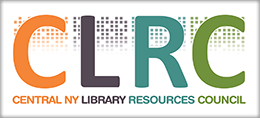Digital Curation: Fundamentals and Sustainability
Online Course offered by the Society of American Archivists
October to November 2023
Recently I had become urgently aware of my institution’s need to preserve digital objects created by employees and members. Fearing that these objects would be disposed of by their creators before I knew how to implement a best-practices digital repository, I skipped straight to selecting and storing them with accessioning data on storage media. But I knew that I needed to learn much more if my efforts were going to be sustainable and interoperable/usable in the future. Thanks to CLRC’s generous professional development grant, I was able to attend a “live” 6-week virtual course offered by Society of American Archivists, which provided an overview of how collaboration between the technological and organizational/human aspects of digital preservation can raise efforts like mine to the level of digital curation.
This was an introductory course that sought to teach the building blocks of a sustainable digital curation program through the application of theory models, assessment models, workflow models, and a metadata standard. It was exciting and helpful that the three instructors were highly-accomplished digital archivists who created some of these models through their involvement with the Digital Preservation Management Workshops project. Each week focused on one building block of digital curation: scope, community frameworks for practice, roles/workflows, technology and standards used in preserving digital content over time, advocacy/collaboration, and digital archive program assessment. In addition to the live instruction session, each week there were pre-readings and up to 60 minutes of instructional videos. To support the volume of questions all of this content created, the instructors maintained a classroom discussion board and held in-session student polls via Mentimeter software.
At the conclusion of the course, I realized that as lone arranger archivist, I cannot single-handedly implement and sustain a best-practices digital curation repository. But I can work on implementing individual building blocks that will support it, should the right organizational and financial support, and digital asset management software become available at the same time. I can perform a digital asset audit for my organization and create a digital records transfer schedule. I can improve the accessioning data that I currently collocate with preserved digital objects by using PREMIS metadata standards to document rights information, and fixity testing and format migration. I can learn how to implement free fixity and file registry software, and improve preservation storage device security with the use of encryption and RAID hard drives. Most importantly, I can continue to advocate with my organizational stakeholders to build financial sustainability and institutional capacity for a digital curation program.
Charlene Martin
Archivist, Sisters of St. Francis of the Neumann Communities
Are you interested in being our next Professional Development Award recipient? Check out the award page for the rules & requirements!
